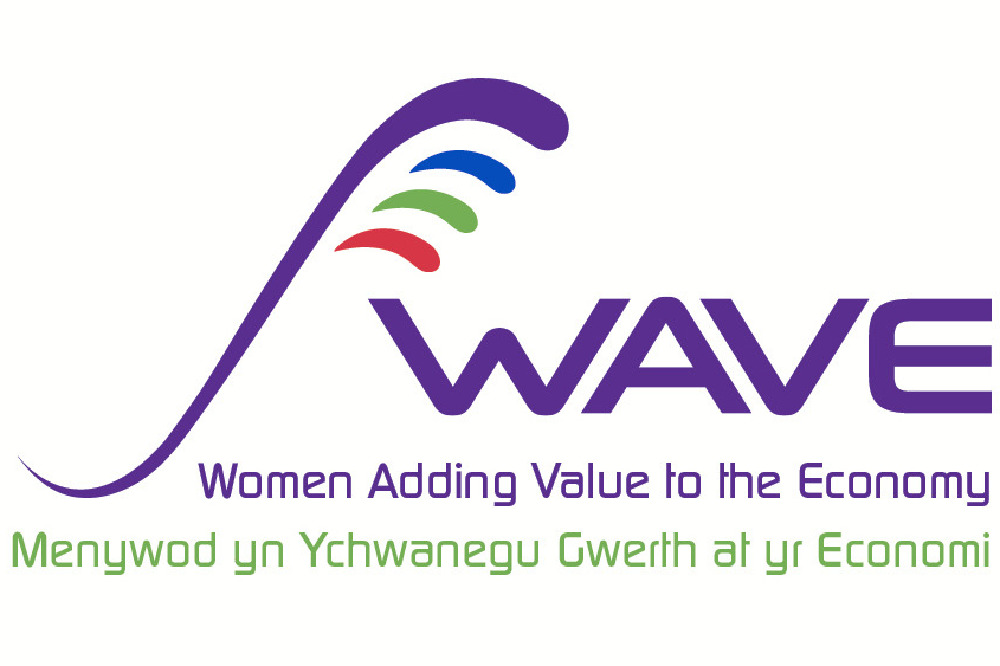
WAVE- Women Adding Value to the Economy
The role of women in the workplace is constantly evolving and now more than ever there is a clear movement of women shifting towards roles and occupations that have been traditionally dominated by men.
WAVE- Women Adding Value to the Economy- has been set up to help increase the earning power of female workers across Wales. They aim to pave the way for more women to enter skilled jobs in higher-paid sectors by offering support and qualifications so they have the confidence to go into these fields and achieve their earning potential. Female mentors and networking are a key part of the support provided by the project. ICT leadership and construction are two sectors of female under-representation which are tackled in Wales by the Women’s Workshop@Bawso as part of the EU-backed project entitled
Laura Davies, is director of the Women’s Workshop@Bawso, part of the EU-backed WAVE project. She looks at how this pattern is emerging particularly in the ICT and construction sectors.
In today’s working economy, more and more women are trying to boost their earning power and career satisfaction by pursuing careers in stereotypical male occupations; not only traditional sectors such as construction, but also new fields within the creative and digital media industries.
However, women still face substantial barriers to land jobs in digital ICT or the construction trades and professions which often pay twice as much as many female-dominated occupations such as care, retail or administration.
Lack of self-confidence, unconscious bias in recruitment and selection and work place culture are just a few of the factors that discourage women from pursuing careers in these industries. Age, recognition of skills and structure of job roles also play a great part, with women showing the desire to enter these professions but not necessarily having the initial skill level and support. There can also often be a lack of knowledge, particularly from those re-entering the workforce or changing career, on how to begin in a new sector.
A recent report from the Construction Industry Training Board (CITB) stated that more than 182,000 jobs will be created in construction over the next five years, yet women remain vastly under-represented.
A similar picture is seen in the ICT sector, where figures from the sector skills council, e-Skills, found that of the 753,000 people working in the IT sector in the UK, just one in five (20%) were women, however, females, although fewer in number, continue to outperform their male counterparts and at Computing and ICT A-Levels, but rarely advance in ICT past this point.
Female administrators in offices across the UK could provide a powerful resource for industry, if their digital talents were used to the full, and although huge numbers of women daily demonstrate strong digital aptitude in administration jobs, female staff are still badly under-represented in higher-level ICT posts, but why is this so?
It seems that, for cultural and various other reasons, many women just stick to the application of ICT although it’s clear from their understanding of the technology that they have the potential to move up into programming, strategic management, creative and even ICT leadership roles. We need to harness this largely hidden talent in order to boost women’s earnings and strengthen businesses, while also placing women further up the economic scale.
Many potential high performers in the ICT field are already in employment and using these technologies on a daily basis, but we need to persuade them to develop their talents and play a much larger role in the growth of this sector.
The new laws on the rights to request flexible working could prove to be a real boost for the construction and ICT sectors by attracting more women. Hopefully it will send a message to women outside the industries that with flexible working possibilities such as job sharing and part-time working these careers are open to them.
Women’s roles within these sectors are an untapped resource and, if utilised, could have great economic influence.
Part 2 of the WAVE project looks at the success stories from two inspirational entrepreneurs who were supported through the tuition from WAVE courses. Catch it live tomorrow!
For more information on WAVE and women in work visit www.wavewales.co.uk
Tagged in jobs

